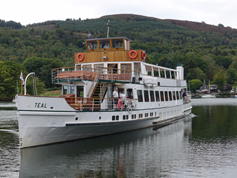Latest Visits
The English Lake District - 2023
Giant's Causeway and Causeway Coast - 2022
Stonehenge -2022
Hadrian's Wall - planned as a City Adventurers holiday 2024

The United Kingdom
As devoted world travelers and heritage enthusiasts, we are always on the lookout for remarkable destinations that reveal a location's rich history and cultural heritage. Every UNESCO World Heritage Site offers a unique glimpse into the past, showcasing the finest examples of human creativity, innovation, and resilience.
On our journey across the United Kingdom we have explored some of the most iconic and awe-inspiring UNESCO sites in the world, from the prehistoric monuments of Stonehenge to the majestic castles and cathedrals of Canterbury and York. We have been captivated by the beauty and significance of natural wonders such as the Giant's Causeway, the Jurassic Coast, and the Lake District.
Join The City Adventurers on an exploration of the UK, and discover the depth and breadth of its cultural heritage. From the ancient ruins to the cutting-edge architecture, there is something to fascinate and inspire every visitor.
The adventures have only just begun!
The English Lake District - 2023
Giant's Causeway and Causeway Coast - 2022
Stonehenge -2022
Hadrian's Wall - planned as a City Adventurers holiday 2024

Tickets are available via our affiliate - Tiquets
Tower of London
Houses of Parliament Entry Ticket and Audio Guide
London Palaces & Parliament: Small-Group Walking Tour
Kew Gardens & Kew Palace: Admission Ticket
Westminster Abbey: Entry Ticket
Westminster: Royal London Tour + Abbey Entry + Afternoon Tea
Royal Observatory Greenwich
Old Royal Naval College: Home of The Painted Hall
The Greenwich Bundle
Stonehenge: Entry Ticket
Stonehenge: Day Trip from London
Stonehenge & Bath: Guided Day Trip from London
Blenheim Palace
The Royal Edinburgh
Edinburgh Castle Guided Tour
Giant's Causeway Tour from Belfast
Bath Self-Guided Walking Tour (2-for-1)
The High Adventure from Windermere
Hadrian's Wall: Half Day Tour From Newcastle
Durham City Half-Day Tour